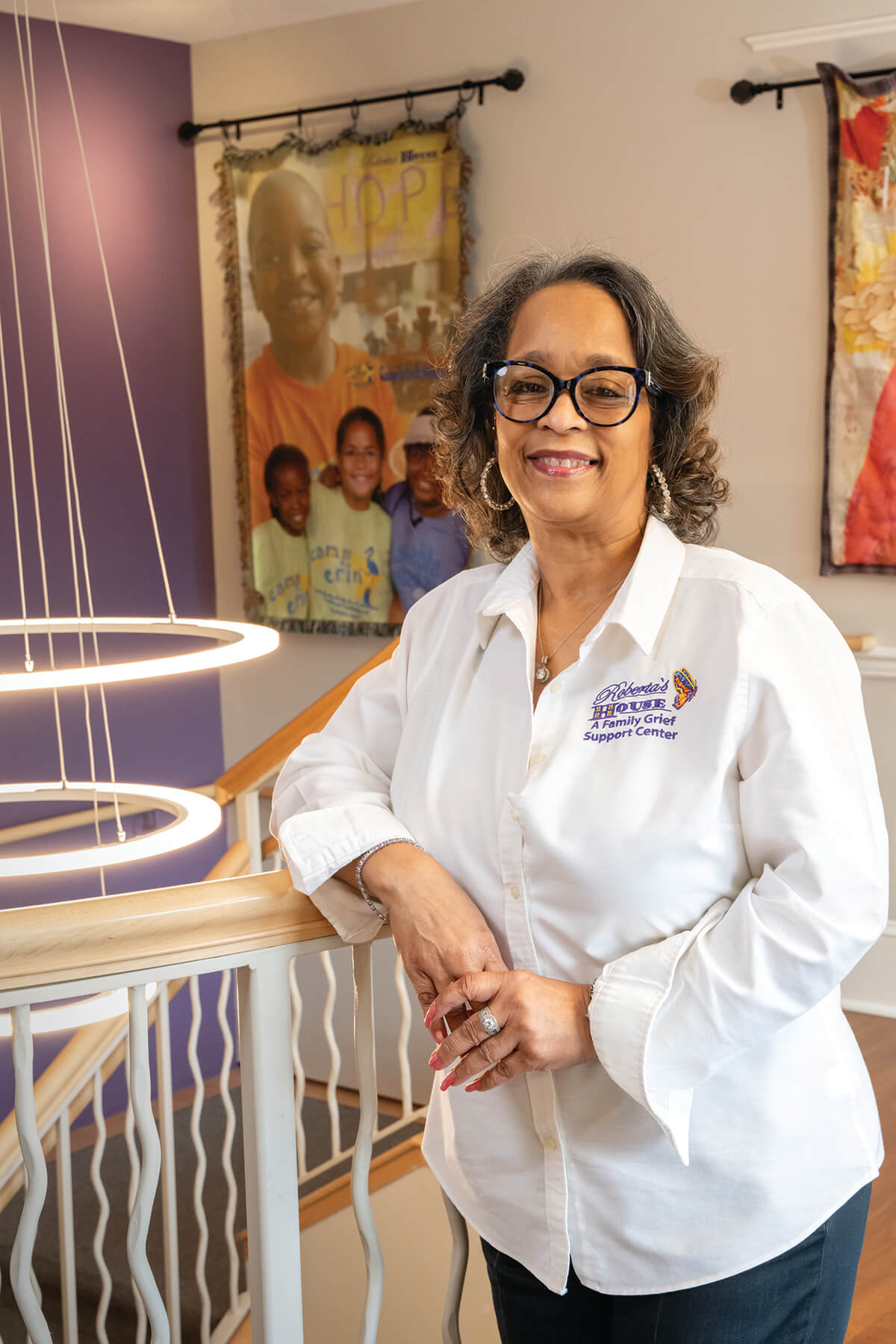Education & Family
Grief Support Programs at Roberta’s House Let Children Heal at Their Own Pace
The family grief support center offers peer groups, workshops, community outreach, and Camp Erin—the largest national summer bereavement program for youth.

After her brother was killed by a drunk driver, Kelli Brooks (pictured) thought she was “going crazy.” She had no idea that grief could manifest in both physical and mental ways. She now says it was “divine intervention” that brought her to Roberta’s House, a family grief support center.
After witnessing the disparity of unresolved grief and loss in urban communities, Annette March-Grier co-founded Roberta’s House in 2008 along with her family, the owners of March Funeral Home, to address the needs of grief, especially in children. The grief center was named after the March family’s matriarch, the late Julia Roberta March.
For Brooks, being able to work through her heartache saved her life and now, as the community outreach coordinator, she sees firsthand how vital it is to have children be part of the conversation.
“It’s really important to involve kids and really teach them, at their level, what grief is, what death is, and how it can impact their lives.”
This is all done through peer support groups, educational workshops, community outreach, and Camp Erin, held every summer. Created and supported by The Moyer Foundation (now Eluna), Camp Erin is the largest national bereavement program for youth. Children and teens attend a weekend camp experience that combines traditional camp activities with grief support, free of charge for families.
The importance of both Roberta’s House and Camp Erin is “recognizing that they’re not alone,” says licensed clinical social worker Aneesha Scott, behavioral health program clinical director for Roberta’s House and Camp Erin Baltimore. “And even when you’re grieving, you can still have fun, you can still laugh, you can still engage with others,” she says, adding that kids learn healthy coping strategies as well.
Last year, Roberta’s House helped more than 250 children, thanks to countless trained volunteers, in ways that let them heal at their own pace.
“Grief looks different for everyone, especially at different ages,” says Scott. “So, somebody comes in and they’re not able to necessarily talk. Sometimes they have to write it. Sometimes we have to do art projects. Sometimes we have to go play in the game room….You have to meet them where they are until they’re ready to tell their grief story.”